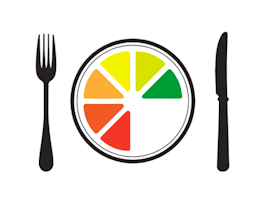Across the globe, more people are suffering from obesity than at any other time in our history. Why has obesity become so common and so challenging? In this course, we will look at the root cause of obesity, as explained by the latest science. We will see how our food environment has evolved over the last half-century, and how it is altering our biology to over-consume calories and resist sustained weight loss. We will also see how stress, a sedentary lifestyle, and inadequate sleep disrupt our appetite control system to promote gaining weight. By developing a better understanding of the physiology behind obesity, you will learn how to work with your body to prevent and manage weight gain. This course will also provide practical tools and strategies for creating a long-term, sustainable weight management plan to leverage your habits and your surroundings.


Weight Management: Beyond Balancing Calories
Taught in English
Some content may not be translated
147,441 already enrolled
(1,104 reviews)
What you'll learn
Understand obesity, appetite hormones, and weight set point.
Identify the main dietary factors that affect weight.
Recognize underemphasized barriers to weight loss such as stress and inadequate sleep.
Develop a weight management plan you can follow for life.
Details to know

Add to your LinkedIn profile
5 quizzes
See how employees at top companies are mastering in-demand skills


Earn a career certificate
Add this credential to your LinkedIn profile, resume, or CV
Share it on social media and in your performance review

There are 5 modules in this course
Since the discovery of the first appetite hormone in the 1990s, the science of obesity has advanced dramatically. The growing understanding of how hunger and weight "set point" are regulated is changing the way we need to approach weight loss. This week, we will see how the brain, hormones, gut, and emotions interact to control food intake and weight. By learning about our biology, and how to work with rather than against it, you will become more successful at reaching your goals.
What's included
5 videos4 readings1 quiz1 peer review
Counting calories can be helpful, but not all calories are created equal. Different foods are broken down and interact with our body in dramatically different ways. This week, we will look at the common ground among the healthiest dietary patterns and outline a framework for the diet best supported by existing scientific studies.
What's included
3 videos3 readings1 quiz1 peer review
While the foods we eat are critical for managing weight, they are only part of the challenge. Often underestimated are the effects of stress, exercise, and sleep. The goal this week is to see how each of these factors can influence the hormones and chemicals that control our appetite and metabolism.
What's included
3 videos4 readings1 quiz1 peer review
Habits drive many of our everyday choices. Unlike deliberate decisions, habits are carried out instinctively. In addition to knowing about the foods and behaviors we need to adopt, we need to engineer habits to support out goals subconsciously. This week, we will learn how to use habit to our advantage and practice mindfulness when we eat.
What's included
3 videos3 readings1 quiz1 peer review
In this final week, we will apply what we have learned - about our appetite and energy balance systems, about the specific foods and other missing links that affect our set point, and about the power of habit and awareness - into practical steps for designing a long-term successful weight loss plan.
What's included
3 videos4 readings1 quiz1 peer review
Instructor

Offered by
Recommended if you're interested in Nutrition

Stanford University

The University of Edinburgh

University of Colorado Boulder

Stanford University
Why people choose Coursera for their career




Learner reviews
Showing 3 of 1104
1,104 reviews
- 5 stars
81.01%
- 4 stars
14.55%
- 3 stars
2.71%
- 2 stars
0.63%
- 1 star
1.08%
New to Nutrition? Start here.

Open new doors with Coursera Plus
Unlimited access to 7,000+ world-class courses, hands-on projects, and job-ready certificate programs - all included in your subscription
Advance your career with an online degree
Earn a degree from world-class universities - 100% online
Join over 3,400 global companies that choose Coursera for Business
Upskill your employees to excel in the digital economy
Frequently asked questions
Access to lectures and assignments depends on your type of enrollment. If you take a course in audit mode, you will be able to see most course materials for free. To access graded assignments and to earn a Certificate, you will need to purchase the Certificate experience, during or after your audit. If you don't see the audit option:
The course may not offer an audit option. You can try a Free Trial instead, or apply for Financial Aid.
The course may offer 'Full Course, No Certificate' instead. This option lets you see all course materials, submit required assessments, and get a final grade. This also means that you will not be able to purchase a Certificate experience.
When you purchase a Certificate you get access to all course materials, including graded assignments. Upon completing the course, your electronic Certificate will be added to your Accomplishments page - from there, you can print your Certificate or add it to your LinkedIn profile. If you only want to read and view the course content, you can audit the course for free.
You will be eligible for a full refund until two weeks after your payment date, or (for courses that have just launched) until two weeks after the first session of the course begins, whichever is later. You cannot receive a refund once you’ve earned a Course Certificate, even if you complete the course within the two-week refund period. See our full refund policy.


